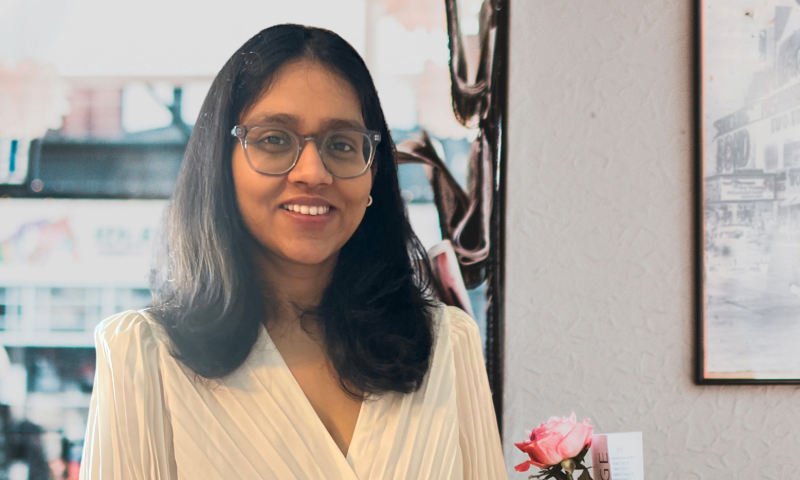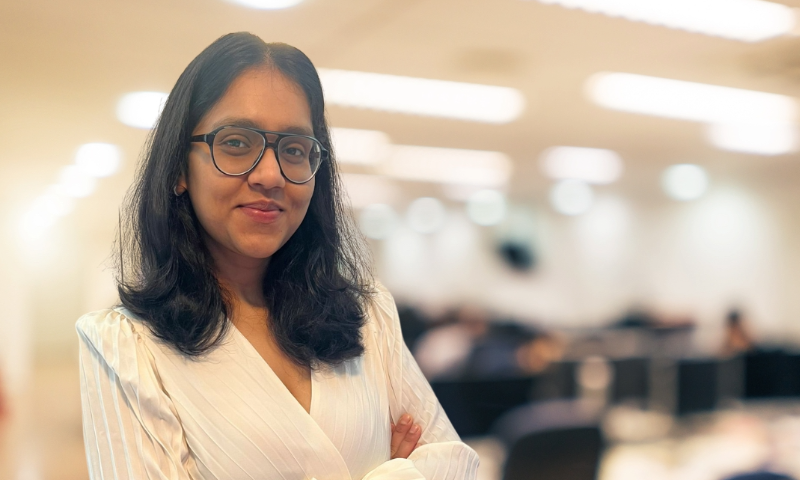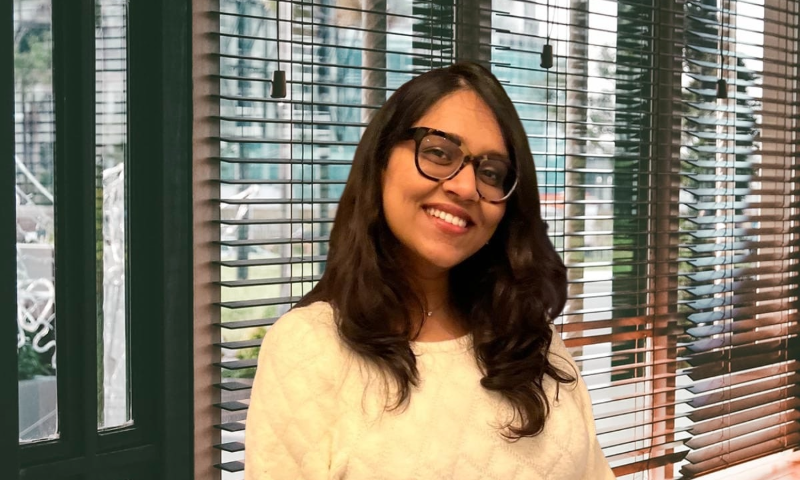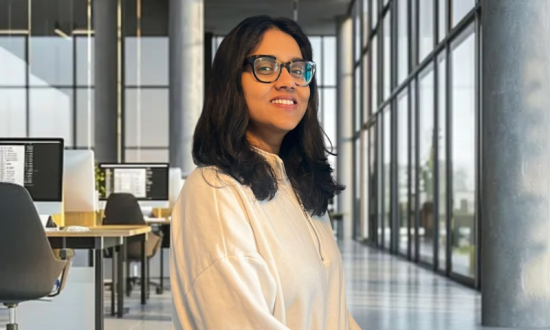Shravanthi Sridhar is a passionate data scientist bridging expertise in complex care and behavioral health with advanced model development and clinical workflow optimization. She completed her undergrad in Computer Science from Rajalakshmi Engineering college in India, affiliated with Anna University. She started her journey where she got certified as a Data science associate from Dell EMC during her studies. She started liking the field, which led her to do her final thesis in the healthcare data science domain. She worked in BI analytics field for about 2 years in India, then took up her master’s in data science from Northeastern University and came to Boston. She completed her specialization in machine learning and optimization. She was working with a professor as an RA in healthcare problem it was about finding wounds healing time for members with diabetes. She was also a TA for some time in data mining foundation courses. With all this and her interest in healthcare domain, she started her internship with CCA in clinical.
Over the years, Shravanthi has been a recipient of numerous awards and recognitions including Top 25 Women in AI, The Top 100+ Women Advancing AI in 2023, The 50 Top Most Extraordinary Women Advancing AI In 2024, to name a few.
Recently, in an exclusive interview with Digital First Magazine, Shravanthi shared her professional trajectory, insights on diversity and inclusion in tech, personal sources of inspiration, future plans, pearls of wisdom, and much more. The following excerpts are taken from the interview.
Hi Shravanthi. Tell us about your career path. What experiences have brought you here?
I started my career in BI analytics area. Working with data and reports made me realize I wanted to explore more on the lines of data and algorithms, hence led me to pursue my master’s in data science from Northeastern University. I started working on a couple of problems with my professor when I was a Research Assistant in the field of healthcare. I developed a profound interest in the area which made me choose my internship in the same line as a Data science intern at commonwealth care Alliance. My role began in a small clinical research team to start building things from scratch. We were sort of doing the 0 to 1 work, kind of using all the available data to help clinical in decision making. With my increased interest in the domain, I got my specialization of AI in healthcare from Stanford Medicine and also did population health informatics courses from Berkely. I continued my full time with CCA post-graduation, continued to work on building products to help clinical in any decision making like early interventions, plans, population approach etc. With my continued interest in data science and healthcare domain, I keep learning more which helps me be updated with the current developments. I believe one should never stop learning, that attitude has definitely help me grow professionally.
What do you love the most about your current role?
Healthcare domain is so vast and clinical data is something which always has new concepts to learn, which increases my exposure to dealing with different types of data and problems. I feel good when I know that a part of my work in some way helps people in real time through care plans and interventions developed. Being in a small team, I get to work from customer requirement to end product development and maintenance, monitoring which gives me full picture in terms of development. I get to design and manage projects thereby also exploring my creative space in coming up with ideas keeping the business requirement, feasibility and other aspects in mind. I enjoy these aspects of my work, keeps me going.

What are the top skills, both technical and soft skills, that are greatly needed in the current technology industry?
I believe you should always have your foundations right. I know we have a lot of new technologies in today’s era through which it might look like anything could be done with just clicks. But ultimately you should know the mechanics behind the concepts and have all your foundations strong to be good at the field. Understand what goes behind each concept, to know which one would work the best for any problem. For example: know the math behind models in machine learning to truly understand them and use them for the appropriate problem.
Communication is definitely a key skill needed in current tech world. You might come across different kinds of people from a variety of backgrounds, some may be from business side who are totally unaware of your tech end of things, in such cases its very important to communicate your thoughts in a clear and concise manner for them to understand move forward. Clear and concise communication always helps with time saving and solution alignment with requirement.
How do you think we can attract more young women to the STEM field?
With early exposure to STEM education and encouragement for them to learn more would attract more young women. I feel like a lot of women get to know about STEM much later in their life, had there been enough exposure much earlier we would see much more in the field today. But things are changing, the awareness part of it has definitely increased in the last 5- 10 years. In addition to that, seeing more successful women in the field would increase their motivation as well. Another important piece is mentorship and networking in the community. Establishing groups to support one another and help each other grow will be a biggest plus.
What are your thoughts on diversity and inclusion in tech? How important is it to have authentic conversations with leaders, professionals, and changemakers to create more acceptance across the globe?
I believe having a diverse team often leads to more innovative solutions when different backgrounds come together to solve a problem. We could eventually have a good discussion and better decision making from this. In addition, having such a variety of backgrounds in a team would attract a broader range of talent. We need to have conversations with our leadership on this to create the awareness and create change eventually. We all do know the ratio differences when it comes to specifically senior management level, this shows the importance of having these authentic conversations. If this is all it takes to create a equitable environment and support underrepresented groups, we should do take this up seriously and start driving the change.

In your academic or work career, were there any mentors who have helped you grow along the way? What’s the best piece of advice you have ever received?
In both my academic and career, I have had strong mentors who gave me exposure at the right time, helping me grow. It started from my undergrad where I had my professor who was always there for me to help with any tech support or trying out new things, be it all. He in fact went to the point of conducting seminars for new tech when we were interested to know more about it. I feel like such things increased my interest in learning more and also made me find the path I like at a much earlier phase. Had I not had the right guidance at the right time, it would have been harder for me to truly find what I like and pursue that. At work as well I had a similar mentor to guide me on being real and still achieving all the milestones, he was the one who taught me the most amazing leadership skills.
The meaning of leadership can change from one era to another, how would you define the meaning of leadership today?
Be honest and real and always make decisions keeping your team in mind. I believe if the leadership is able to follow this right, the team can achieve amazing things together. Its always the simple aspects that could make a team feel good and motivated on accomplishing new & challenging tasks.
What is it that motivates and inspires you in your everyday life?
The data science field is constantly evolving, with new tech and algorithms emerging regularly. I am motivated to stay current which challenges me to never stop learning. Being in the healthcare domain, I feel contended at the end when I know that what we build is making a difference in someone’s life. And of course, my family has always been there to support and motivate me to do more.
Fun fact about you?
I love hiking, Mt. Washington is my longest so far. In the name of being extra adventurous, I often tend to take the wrong path and get lost in the journey.

Where do you see yourself in the next 5 years?
I would like to further advance my career deepening my technical expertise and taking on more leadership roles. I would also work on giving back to the community in whatever ways I can. To promote diversity and inclusion, as a fellow woman in data science I will involve in more initiatives within my org and outside to help create a more inclusive environment. I hope to be a role model for other women trying to enter the field and to contribute to creating a more equitable tech space.
What advice would you give to women who want to enter the tech industry?
I would advise women to strongly believe in their abilities as tech can be intimidating, so work on building a strong foundation for that. If you’re foundations are strong and you have the capability to see the whole picture and not just the small problem in front of you, you will be able to solve anything. I would also encourage them to join supportive communities and make use of all the resources, mentorship & networking opportunities. Don’t forget to develop soft skills on the way as that’s very important when it comes to business, thumb rule is always strong core foundations + soft skills. Last but not the least, never be afraid of taking the risk. Its all a learning process and failures definitely help us in understanding all the aspects of a problem and doing better next time.






